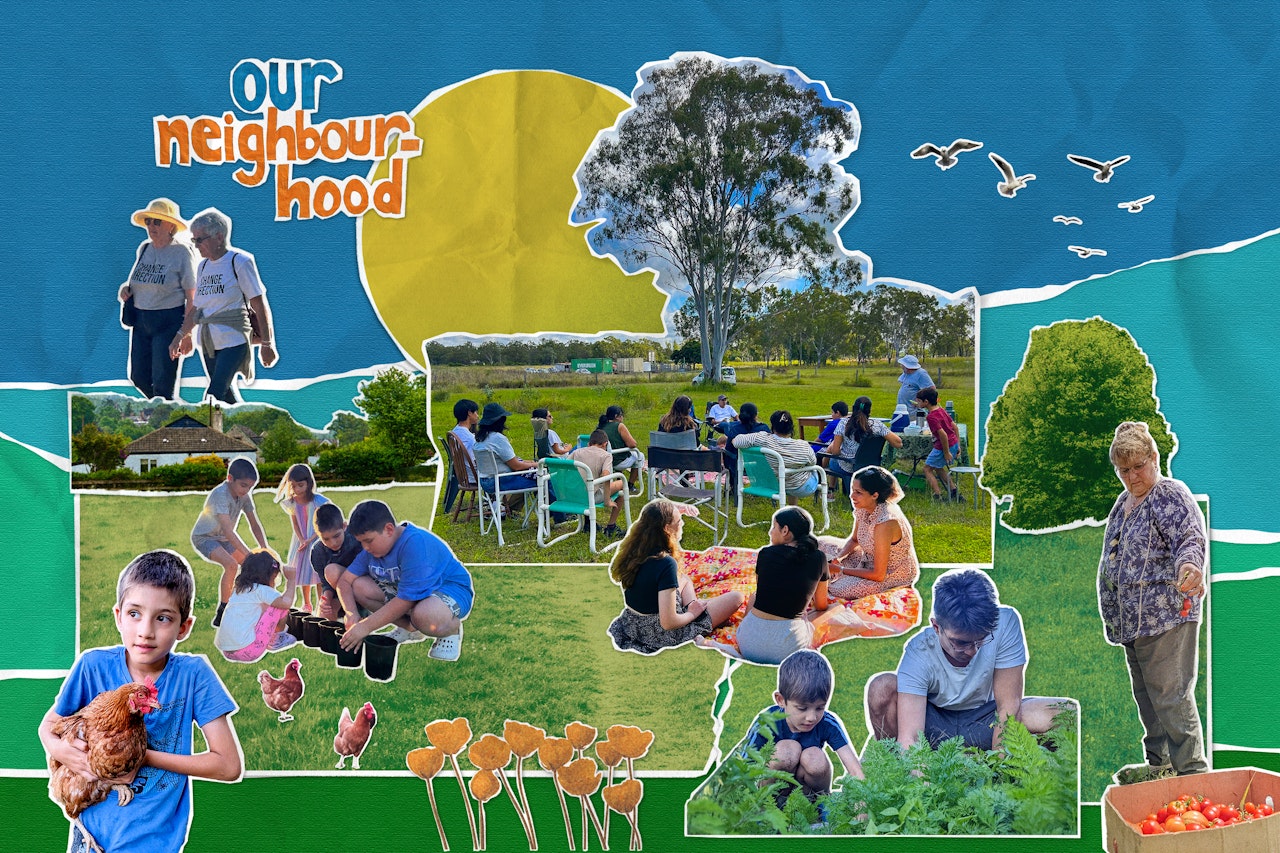Australia
Family-led environmental initiatives foster belonging
Families in rural Queensland turn a streetside garden into a place for service and to support local biodiversity.

Families in rural Queensland turn a streetside garden into a place for service and to support local biodiversity.

ROCKHAMPTON, Australia — In the Queensland town of Gracemere, a neighborhood “verge” (streetside) garden started in 2016 has become a wider, collaborative effort to support local biodiversity and create spaces for service that bring families together in collective action.
Early on, a family, inspired by Bahá’í community-building initiatives, planted vegetables on the public strip of land in front of their home. The initiative invited curiosity from passers-by, opening conversations about sustainability and shared purpose.
“In an urbanized world where we consume but do not produce, we are learning to grow our own food and also how small acts in a neighborhood can help us to cultivate a strong sense of belonging,” said Mehraban Farahmand, an Auxiliary Board member, in a conversation with the News Service.
As the garden expanded, more young people engaged in Bahá’í moral and spiritual educational programs joined in, growing sunflowers to share with neighbors while families contributed kitchen scraps for composting and benefited from the harvests.
“There has been a shift among participants from viewing gardening as an individual pursuit focused on private spaces toward understanding it as a collective endeavor that strengthens community,” said Mr. Farahmand.
The initiative has since evolved into a community garden in a local park, inviting many families to work together in service to their broader community.
Inspiring other initiatives
The gardening initiative has sparked other practical projects, such as a small “Homework Club” for local children.
Nikki Cody, a parent and teacher involved in the Homework Club, said, “It began with just one child needing assistance. Now, it is a space nurturing both learning and relationships. Parents and children alike benefit socially and emotionally by gathering with a shared purpose.”
Another initiative is a “Community Chook (chicken) Pen” built by youth entirely from repurposed materials. Initiated during community-wide consultations known as “days of social action,” the pen provides eggs, fertilizer, and a focal point for ongoing conversation and connection.
Reflecting on these interconnected efforts, Ross Tysoe, a parent and permaculture practitioner, described their impact on his family. His farm has become another hub for learning about agricultural practices, including for the participants of the Homework Club.
“We are happy that our farm can serve as a place for learning about practices essential to improving natural soil biota, which in turn produces nutritious fruits and vegetables for the community,” said Mr. Tysoe.
Seeing beyond success and failure
Rather than advancing through a pre-determined push, these initiatives have unfolded through periods of progress followed by quieter phases.
When early efforts to broaden participation did not always draw the hoped-for turnout, families gathered to consult on what they had learned: How could they better understand people’s schedules? How might they communicate their vision more effectively?
Quieter periods were treated not as failures but as opportunities for observation, consultation, and refinement, helping families to better understand their community’s rhythm and needs.
Inviting collaboration
Consultation as a mode of decision-making has allowed ideas to emerge through thoughtful discussion and collective reflection.
“It is not about one person saying, ‘This is what we are now doing,’” Mr. Farahmand explained. “Instead, we ask questions, explore ideas, reflect together, and take small steps.”
This consultative spirit extends to collaboration with local institutions, particularly the Rockhampton Regional Council, which has become an important aspect of these efforts.
Working alongside a nearby university, participants and organizers of the gardening initiatives have explored composting and sustainable agricultural practices and sparked broader community discussions about creating a local “Blue Zone,” prioritizing well-being.
As families have strengthened their bonds through these smaller initiatives, their collective capacity to undertake more substantial projects has grown.
Thoughtful neighborly acts—sharing spare seedlings, lending tools, tending to the compost, helping with homework, or sharing meals—have surrounded families with practical support, showing the power of collective action and consultation when it is woven into daily life.